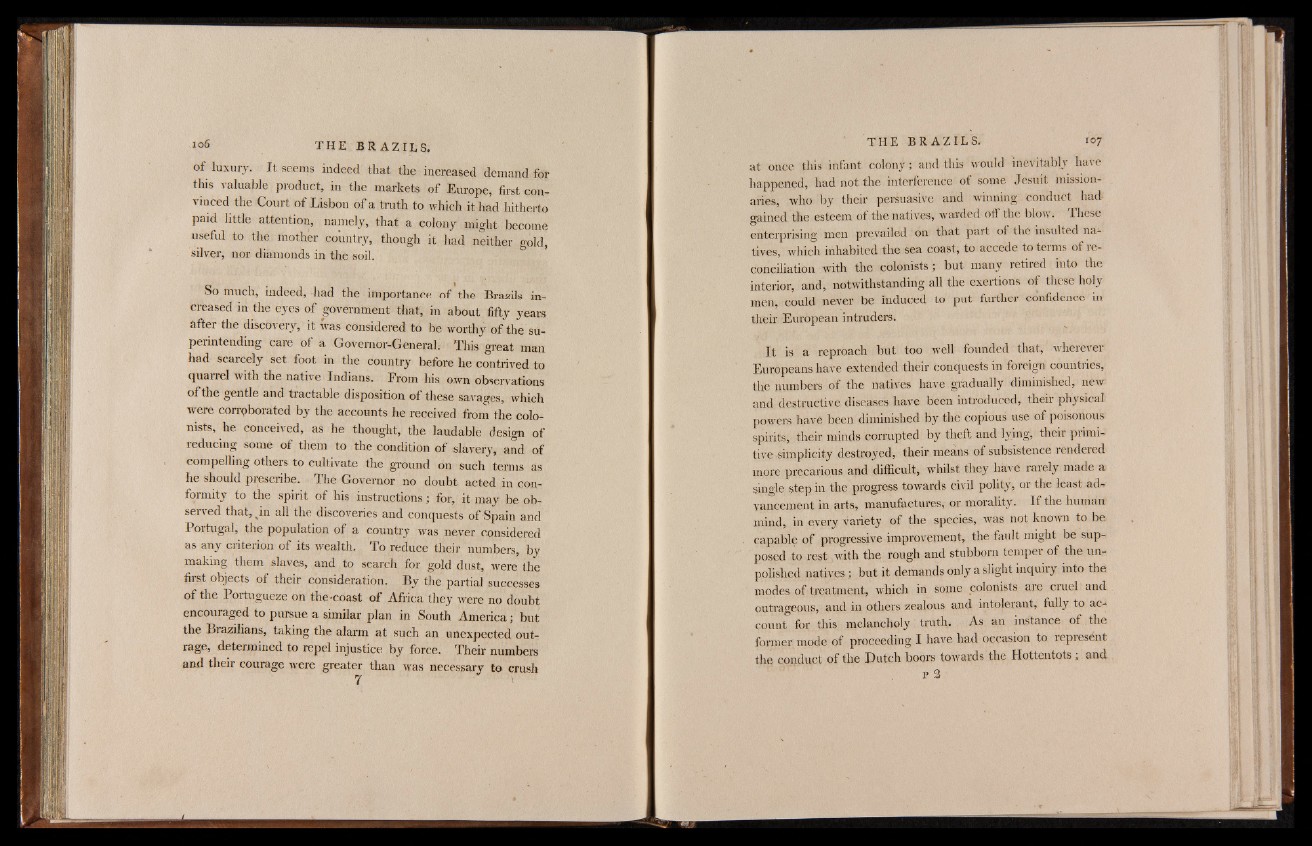
of luxury. I t seems indeed that the increased demand for
this valuable product, in the markets of Europe, first convinced
the Court of Lisbon of a truth to which it had hitherto
paid little attention, namely, that a colony might become
useful to the mother country, though it had neither gold,
silver, nor diamonds in the soil.
So much, indeed, Lad the importance of the Brazils increased
in the eyes of government that, in about fifty years
after the discovery, it was considered to be worthy of the superintending
care of a Governor-General. This great man
had scarcely set foot in the country before he contrived to
quairel with the native Indians. From his own observations
of the gentle and tractable disposition of these savages, which
were corroborated by the accounts he received from the colonists,
he conceived, as he thought, the laudable design of
reducing some of them to the condition of slavery, and of
compelling others to cultivate the ground on such terms as
he should prescribe. The Governor no doubt acted in conformity
to the spirit of his instructions; for, it may be observed
that, pn all the discoveries and conquests of Spain and
Portugal, the population of a country was never considered
as any criterion of its wealth. To reduce their numbers, by
making them slaves, and to search for gold dust, were the
first objects of their consideration. By the partial successes
of the Portugueze on the-coast of Africa they were no doubt
encouraged to pursue a similar plan in South America; but
the Brazilians, taking the alarm at such an unexpected outrage,
determined to repel injustice by force. Their numbers
and their courage were greater than was necessary to crush
at once this infant colony; and this would inevitably have
happened, had not the interference of some Jesuit missionaries,
who by their persuasive and winning conduct had
gained the esteem of the natives, warded off the blow. These
enterprising men prevailed on that pait of the insulted natives,
which inhabited the sea coast, to accede to teims of reconciliation
with the colonists; but many retired into the
interior, and, notwithstanding all the exertions of these holy
men, could never be induced to put further confidence in
their European intruders.
It is a reproach but too well founded that, wherever
Europeans have extended their conquests in foreign countries,
the numbers of the natives have gradually diminished, new
and destructive diseases have been introduced, their physical
powers have been diminished by the copious use of poisonous
spirits, their minds corrupted by theft and lying, their primitive
simplicity destroyed, their means of subsistence rendered
more precarious and difficult, whilst they have rarely made a
single step in the progress towards civil polity, or the least advancement
in arts, manufactures, or morality. If the human
mind, in every variety of the species, was not known to be
capable of progressive improvement, the fault might be supposed
to rest with the rough and stubborn temper of the unpolished
natives; but it demands only a slight inquiiy into the
modes of treatment, which in some colonists are cruel and
outrageous, and in others zealous and intolerant, fully to account
for this melancholy truth. As an instance of the
former mode of proceeding I have had occasion to represent
the conduct of the Butch boors towards the Hottentots, and